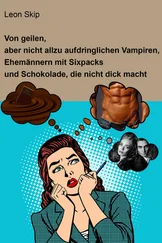Akutagawa stepped into the restaurant scenery on set. Michiko Zento turned the camera toward him. “I have been driven to my death by Mr. Istvakson. Finally it has happened!” Akutagawa said, apparently continuing his last will and testament. “I leave my clothes to my nephew in Tokyo. I leave my journals and other writings to Michiko Zento. I leave my house to my sister. Whatever little money I have, I leave to my niece Kyoko, who lives in the city of Portland, Oregon, in America. Otherwise, I have nothing. I have only had my work. I am now leaving for home. I think I’ll go shipboard. There is much water, as you must have heard, to jump into between the country of Canada and the country of Japan.”
Istvakson applauded, but nobody else did.
Michiko Zento now helped Akutagawa to his hotel room. He stumbled along beside her. The scene was struck and the cast and crew scattered to their various rooms or off to cafés or restaurants or other night spots. Lily Svetgartot saw me and walked right up and said, “This has been a pretty awful day. What just happened was only part of it. Now I’m going to have to sit up with Akutagawa all night — how do you say it? I heard this phrase once and liked it — applying the balm. I’ll have to talk him into staying. Doctors will be summoned. All that, all that, all that. Good Christ.”
The fact is, Padgett had declared his sordid intentions to Elizabeth on several occasions outside the ballroom. The first was about two months before he murdered her. At that time, he’d seen her leaving the public library on Spring Garden and, after following her for a few blocks, stepped up to her and said, “Mrs. Lattimore, out for a stroll, I see.” Elizabeth said, “I’ve been working, Mr. Padgett. And now I’m going to meet my husband at home.” To which Padgett replied, “Oh, I’ve tied him up to that antique sofa of yours. That gives you and me lots of time to have an old-fashioned heart-to-heart. What do you say?” “You’d have to have a heart for that,” Elizabeth said, and crossed the street. Padgett apparently was stung by this remark. He soon caught up with her. Elizabeth stopped, looked around at how crowded the shopping area along Spring Garden Road was, and felt less vulnerable for all of that. “Fuck off, Mr. Padgett,” she said. It struck Elizabeth that having said this was an incitement to him, because he said, “You have a certain way with words.” Then he said, “I get women. I can get all the women I want. Whenever I want a woman, I get one. I’ve even got them in the very hotel where I’m employed. The very same hotel you live in.” “Mr. Padgett,” Elizabeth said, “I’ll see that you get fired. You’re a creep. You’re a menace. Now fuck off.” “Hey, it so happens I’m on my way back to the hotel too,” he said. “My shift begins in ten minutes. What’s the harm in me escorting you? Afraid hubby will get jealous and try to do something about it?” “You think you’re in a movie,” Elizabeth said. “But really you’re in your own sick head.” She shoved him hard and he stumbled into the road, barely avoiding being hit by a car. Padgett looked around, shrugged, and said loudly to passersby, “Lover’s quarrel.”
Later, when Elizabeth walked into our apartment, she immediately poured herself a whiskey and sat me down at the kitchen table to tell me all of this. Then we registered yet another complaint with Derek Budnick, who replied with a note in our mail slot: “Incident duly noted. However, it took place outside of hotel jurisdiction. Please contact the police and make an official statement. I will speak with Mr. Isherwood again. Rest assured I have my eye on bellman Padgett.”
The next morning, we went to the police station. There we had the attention of Detective Frederick Levy, who said that given the history with Padgett (“I have no doubt whatsoever about the authenticity of everything you’ve told me”), under most circumstances a case could be made for a restraining order that would not allow Padgett within three hundred meters of Elizabeth. Yet considering the fact that he was employed in the hotel where we lived, such an order could hardly be imposed. Detective Levy suggested that we move. “Get away from this freak of nature,” he said. “Though from what you’ve told me, said freak of nature might be the type to take his behaviors for a walk right behind you down the street again.” (At Padgett’s trial, Detective Levy testified that Derek Budnick had come to the police station and was told to keep him, Detective Levy, closely apprised of everything pertaining to Alfonse Padgett.)
The second incident occurred on Lower Water Street, near Historic Properties, about a week after the first. “This time things got even more creepy, Sam,” Elizabeth said later. “I’m going back to Detective Levy.” She was quite shaken.
What happened was, Elizabeth was sitting in the library, in her favorite carrel, when suddenly Padgett pulled up a chair next to her. He spoke in a whisper, as if following library rules. “You and your husband are word people, right? You write a lot of words. You think about which correct words to use in which situation. You both get paid for that, right?” Elizabeth didn’t know whether to leave her chair and get help, or just wait it out, or what to do, really. Padgett more or less had her cornered. “Well, I found a word you might like to use. I heard it first in a pub on Water Street and tried to look it up in Webster’s, eh? But it wasn’t in the dictionary. It’s now popular with me, if not in popular usage. I love this word; it slips so smoothly off the tongue. Want to know what word I’m referring to, Mrs. Lattimore? Want it to slip off my tongue?”
But at this point in the telling, Elizabeth had to stop. Shaking her head back and forth, she said, “No, I’m not going to say it. It’s so disgusting, Samuel. If I say it, it’d make me sick. I don’t want it to be a word you ever heard me speak, okay?”
“Yeah, I had designs on the lady and wanted to fulfill my designs,” Padgett had said in court, according to Derek Budnick. “She said a big no, and what happened, happened. I had to fulfill a different design. I partly consider it her fault. I mean, she had a choice in the matter.”
With Dr. Nissensen, June 20, 1973:
Five minutes into today’s session, I was more agitated than I’d ever been in his office. “Too much coffee, Sam?”
“One cup this morning, but I’ll have an espresso later.”
“How have you been?”
“A few nights ago I saw the actress playing the role of Elizabeth, name of Emily Kalman. I was down at the beach to see Elizabeth, and thought it was Lizzy. But it was not her; it was the actress. And the thing is, she looked—”
“My guess is that the physical resemblance threw you off balance.”
“Yes.”
“I can’t remember — was your Elizabeth’s picture in the newspapers? I imagine, especially outside of Halifax, few who will eventually see the movie are likely to recognize the similarity. The question remains: why the need to make an actress resemble your wife so closely? That doesn’t seem necessary. In the least, it’s a perverse use of research. Research — one of your poison words, right?”
“What upset me most was that Elizabeth wasn’t about to show up if another person was on the beach. No way she would show. Nobody’s ever on that little cove. Nobody but Lizzy and me. Philip and Cynthia hardly ever set foot on it, and never at night. Never at night.”
“Miss Kalman the interloper.”
“You put it differently than I feel it.”
“How do you feel it, Sam?”
“Now you sound like a shrink: How do you feel about that? ”
“I am a shrink.”
Читать дальше












